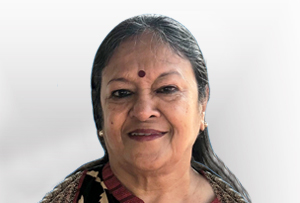A major focus area of RI President Shekhar Mehta this Rotary year will be empowering the girl child. In recent years I’ve watched several Rotary clubs working passionately for the girl child, building thousands of toilets for exclusive use by girls in schools across India under the WinS programme, to prevent adolescent girls dropping out of school for lack of privacy. So many clubs have also taken up projects to spread awareness on child sexual abuse and how to differentiate between good and bad touch.

For a month now Chennai has been rocked by a scandal involving the sexual harassment of schoolgirls by their male teachers in some of the most prestigious schools. It all started with a brave young woman, Kripali, an alumnus of an elite Chennai school, sharing appalling Instagram stories and screenshots of conversations between a Commerce teacher of the school and girl students. The scoundrel, who has now been arrested, would comment on their appearance, send them pornography links, touch them inappropriately, ask them out for movies and turn up for online classes with just a towel wrapped around his waist.
Following these allegations on social media, over 1,000 alumni of that school demanded the teacher’s sacking. He was arrested under the POCSO (Protection of Children from Sexual Offences) Act. Soon complaints, involving male teachers from six schools, including one Kendriya Vidyalaya, poured in. The theme was common — pinching thighs, slapping bottoms, encircling waists, and lewd comments and gestures.
The saddest part was that this heinous sexual predator was dismissed from another school for forcing his girl students to sit on his lap, and give him “friendly kisses”, whatever that means. Had the offender been handed over to the police right then, hundreds of other girls would have escaped the humiliation and trauma of sexual molestation by a teacher.
Unfortunately, in several schools, complaints made to the school managements hitherto had been stonewalled. Denial is so much easier than action. Add to this the upbringing and social conditioning of our daughters in most families being so skewed that a victim of sexual harassment first blames herself, thinking: ‘I must be doing something wrong’. Many harassed girls said they had told their mothers, but were shamefully advised to “keep quiet”, avoid the perpetrators and finish their high school. Who is going to compensate these young minds for the psychological scarring caused?
I’m sure this is only the tip of the iceberg. Girls from affluent classes going to reputed schools in a city like Chennai finally found a voice, thanks partially to the anonymity offered by social media platforms. What about the small towns and rural areas? What assurance is there that similar sexual harassment is not going on unabated, unreported?
This is serious cause for concern as our education ethos is already loaded heavily against the girl child. We all know that where financial resources are limited, the son goes to a private school, the daughter to a government school. Provided she is not required at home to cook, clean and look after her younger siblings. UNICEF’s India head Yasmin Ali Haque had spelt out at the virtual Rotary Institute the terrifying prospect of a post-Covid world where “11 million girls may not return to school this year due to the unprecedented disruption in schooling.”
I salute the brave girls of Chennai who dared to speak up, and their seniors who supported them.
Rasheeda Bhagat





